Fallon Naval Air Station is continually growing, and that growth is about to explode. With the recently approved Fallon Range Training Complex Modernization (FRTC), a multitude of opportunities for small and minority-owned businesses are on the horizon.
As one of the federal government’s largest branches, the US Military employs many private contractors to support military and civilian operations nationwide. However, this is more challenging for bases in rural areas. Due to FRTC, more contractors are needed to support the expansion and support existing NAS Fallon operations. Part of the FRTC modernization includes airspace expansion, modifications, and upgrades to the range infrastructure.
NAS Fallon is part of the Navy’s southwest region’s Naval Facilities Engineering Systems Command (NAVFAC), which spans the central to southern parts of California and Nevada, including San Diego, with strategic locations in Utah, Colorado, Arizona, and New Mexico. NASF, along with NAVFAC Southwest, is positioned to grant a growing number of contracts to various potential construction and service companies locally and throughout the region.
While the Navy uses civilian contractors on an ongoing basis, the NASF range modernization is one of the most robust opportunities for small area businesses. In conjunction with both the state and federal Small Business Associations, Churchill Economic Development Association, and several other partners geared toward supporting small businesses, NASF held a training event last week to help guild potential tribal-owned contractors navigate the complex process of securing government contracts.
“Employing small businesses is a function of the Department of Defense and a priority focus for the Secretary of the Navy,” said NASF Commanding Officer Capt. Shane Tanner. While NAVFAC Southwest is working to contract with more small businesses in general, the event’s focus was to attract ethnic minority-owned companies, which are in short supply in Churchill County.
NAS Fallon is home to top-level training programs like Top Gun and Navy Special Warfare SEAL training, and specialized and modern infrastructure are crucial to keeping the base viable and capable of continued economic growth. The need for civilian contractors exceeds NASF’s ability to provide them. The Native American-owned Small Business Training event hoped to attract contractors that could help bridge and gap.
Securing government contracts can be daunting, but trainers provided detailed instructions on the ins and outs of doing just that. With the help of NAVFAC and their small business partners like the SBA, APEX, the Minority Business Development Center with the US Department of Commerce, and others, potential contractors are provided with a wealth of resources to walk them through the process that will land them on the approved list of contractors. Specifically, NASF needs construction and support services contractors of various sizes.
According to Kim Boni, NAVFAC contract specialist, NASF hosts about 3,500 active-duty personnel, many more civilians directly employed, and several civilian contractors. The base brings about $500 million to the local economy and is looking to add to that number by granting local contracts. Some of the upcoming projects include the F35 Hanger and outboard runway replacement/taxiway project, continuing base housing expansion to 172 additional homes, base infrastructure renovations and remodels, fencing, environmental and nature conservation work, architectural and engineering, and other facility-based support. “We are absolutely looking to contract more small businesses for NAS projects,” said Ken Thomas, NAVFAC Acquisitions branch head, who explained it was a priority for the DOD to bring on more Native American contractors.
Ashe Sobhe, Business Advisor for the Minority Business Development Center with the US Department of Commerce, explained that ethnic minority-owned businesses are different from just minority-owned, which can include women and disabled veterans, and others. There is a short supply of ethnic minority-owned business contractors in Northern Nevada. This allows entities like MBDC to focus on assisting Nevada’s Native American small business owners and walking them through the process of becoming an NASF or NAVFAC contactor. The DOD requires NAVFAC to include at least 10% ethnic minority-owned contractors, which are currently less than 5%. With that percentage to increase to 15% by 2025, the government is working to do everything possible to assist in the process.
NAS Fallon has various resources available to assist potential contractors throughout the entire process of becoming an approved Navy contractor, how to bid posted jobs, and how to become sole source contractors and contract for long-term projects. Once the company is on the approved list, it can remain there for up to eight years.
For more resources, visit GOED APEX Accelerator, NAVFAC SW Small Business Programs, US and Nevada Small Business Administration, Churchill Economic Development Authority, NV Minority Business Development Agency, and the Minority Business Development Center with the US Department of Commerce.


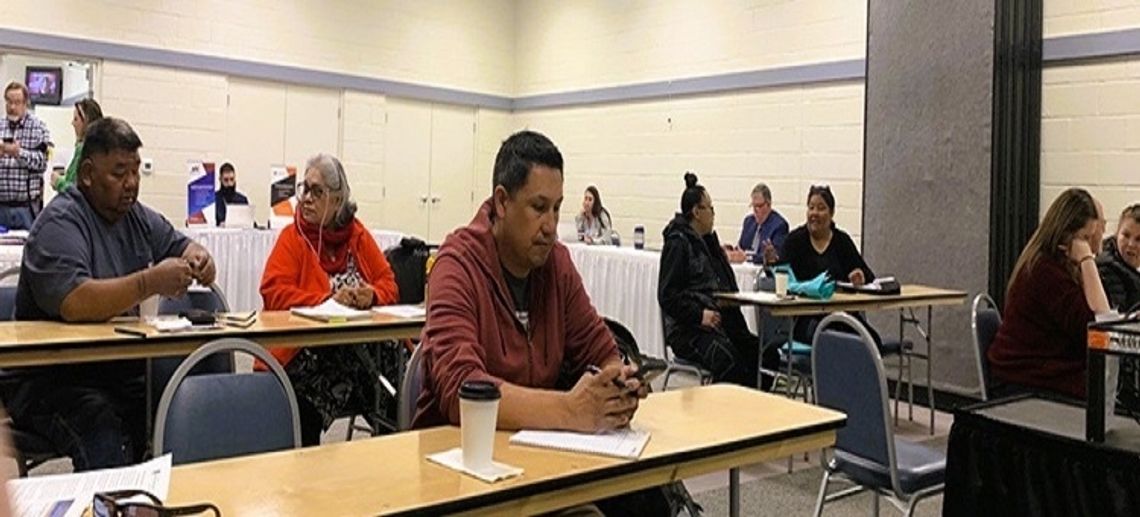
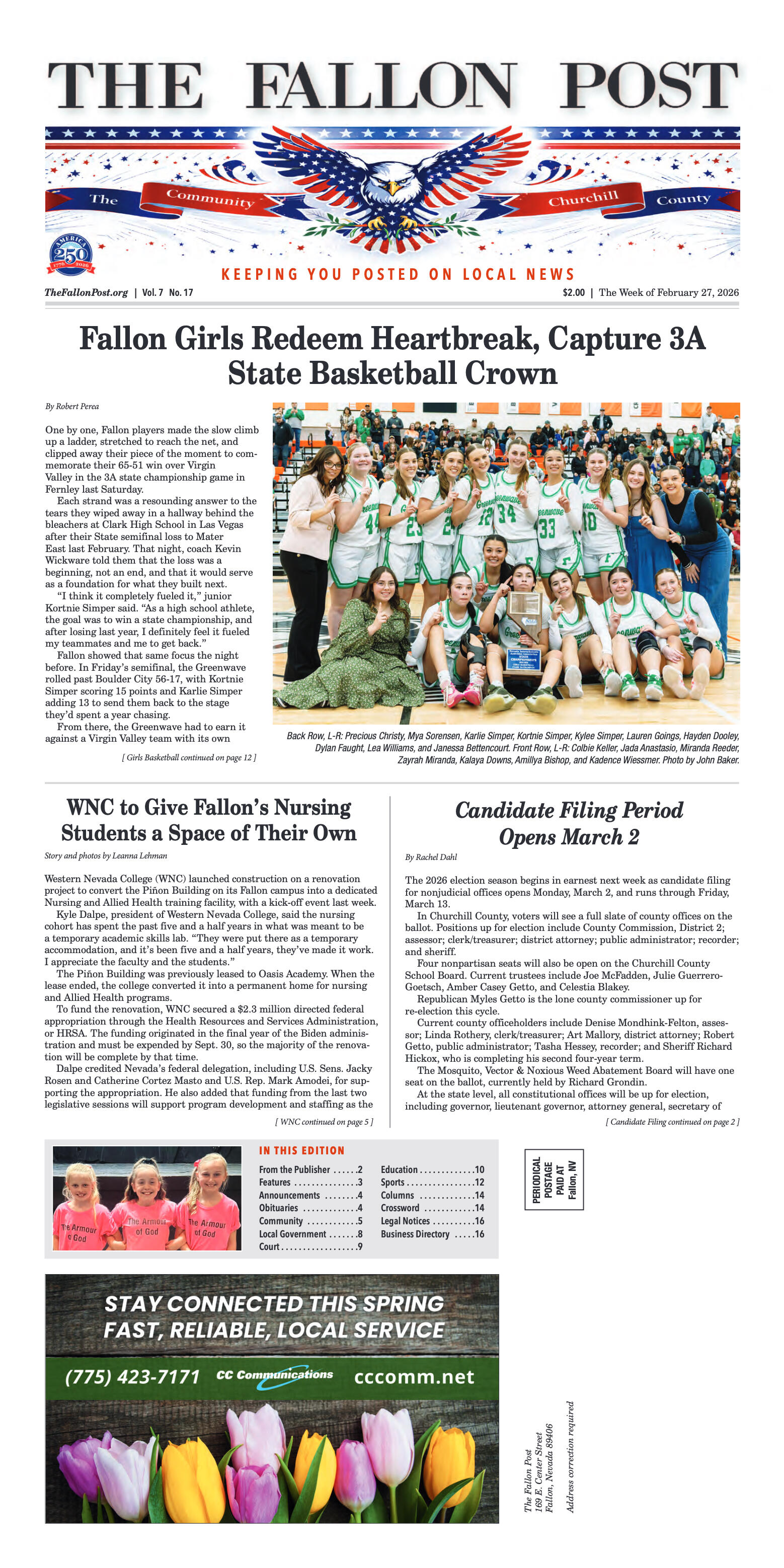
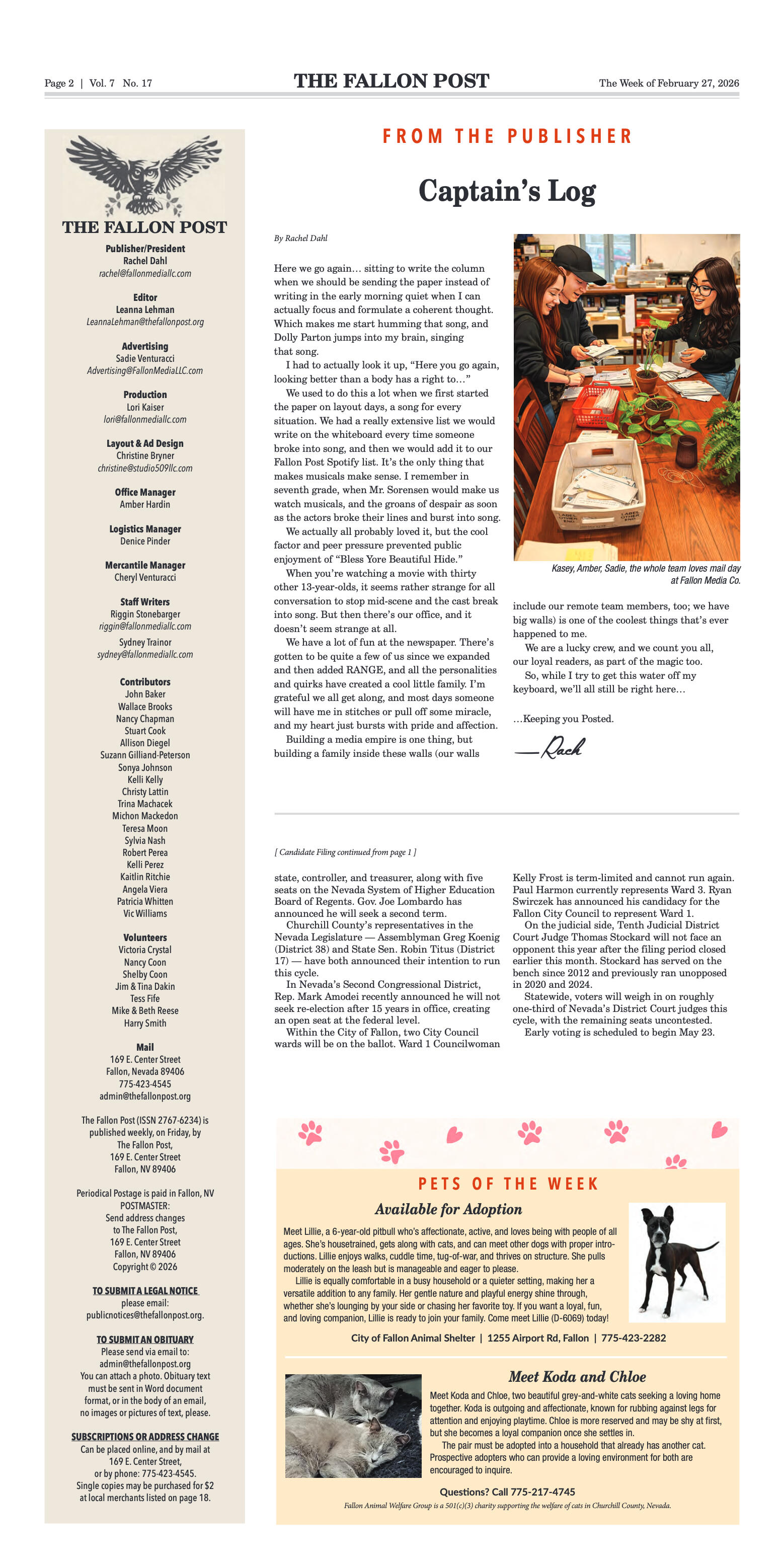
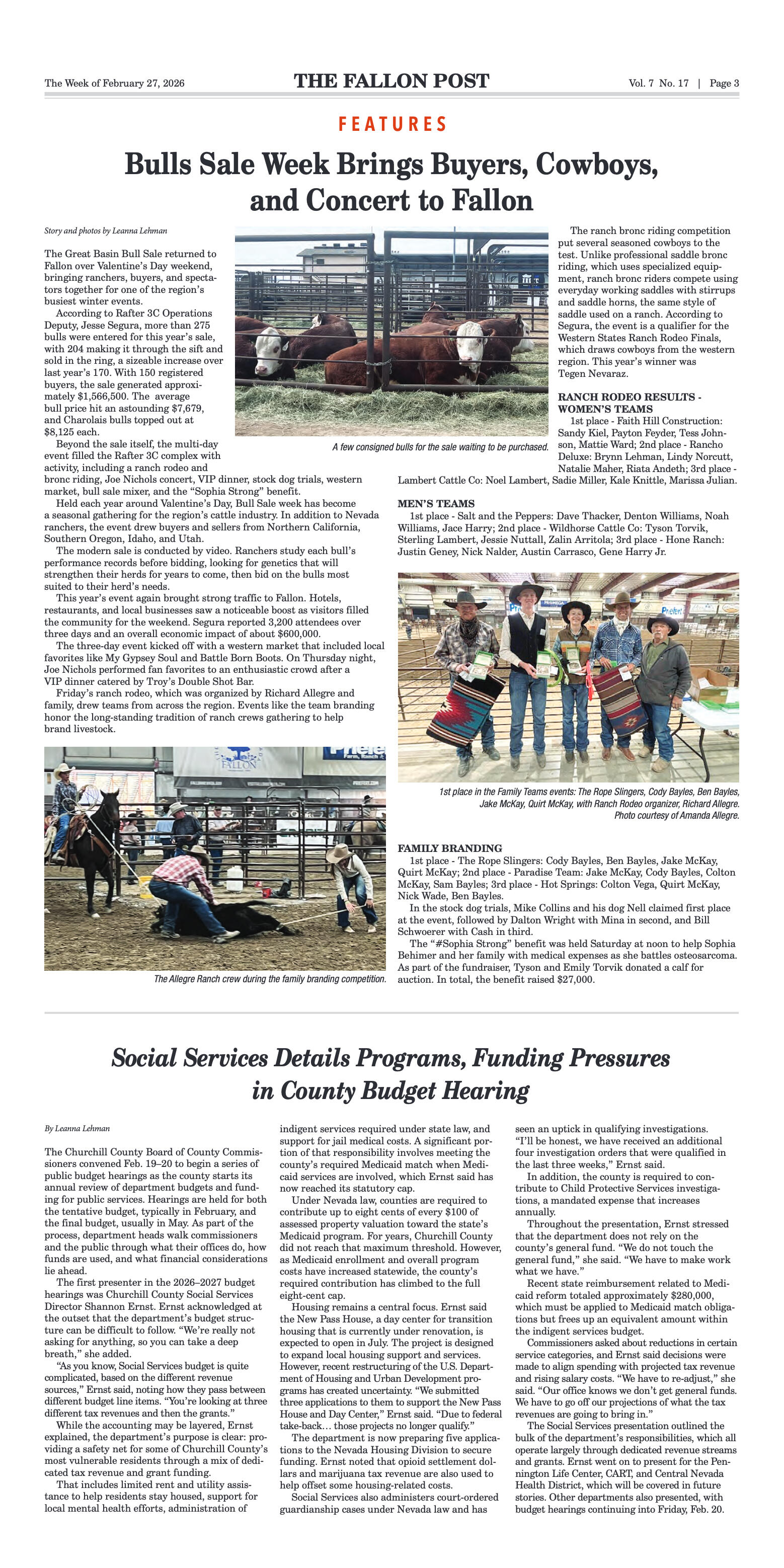
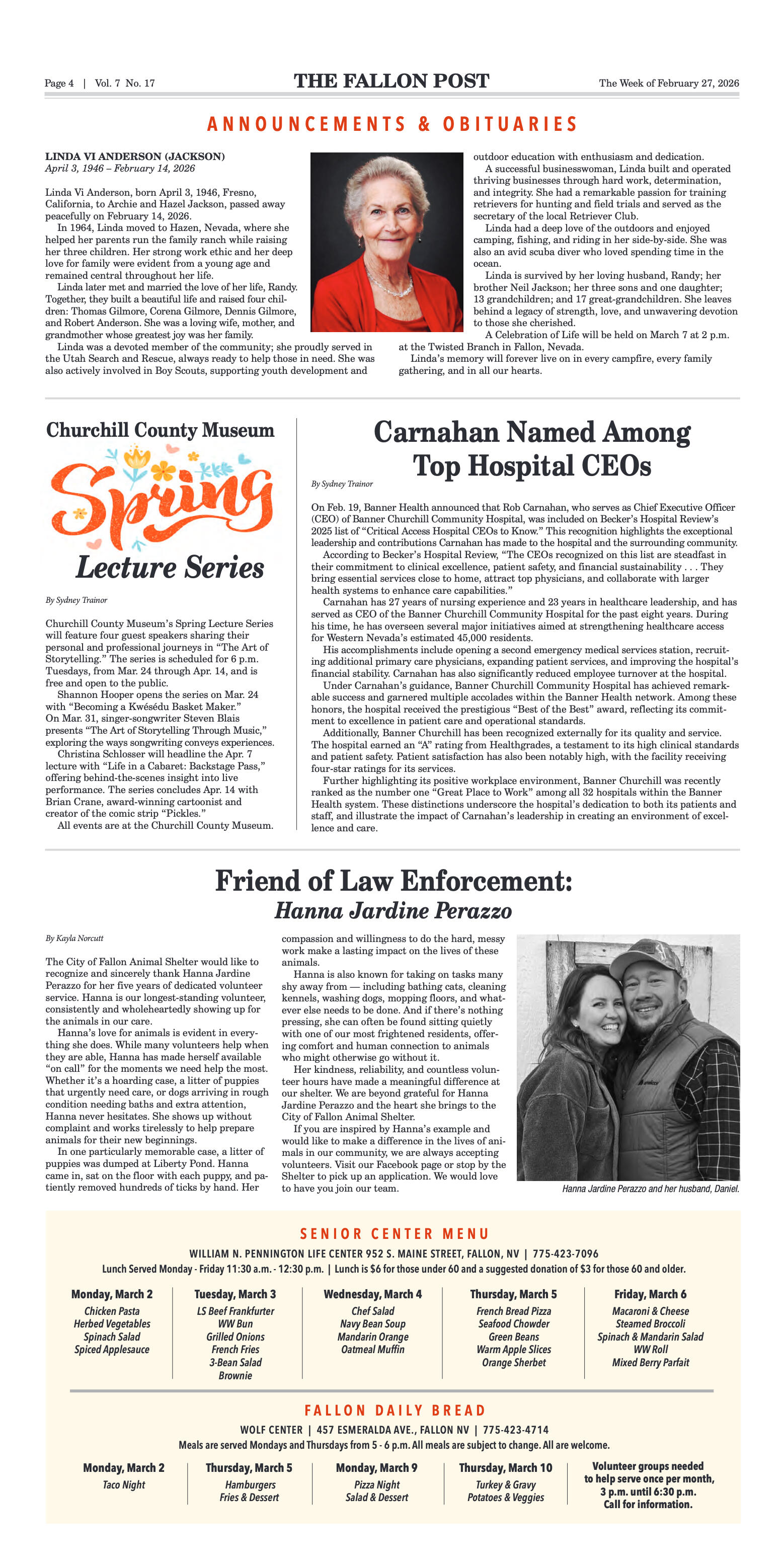
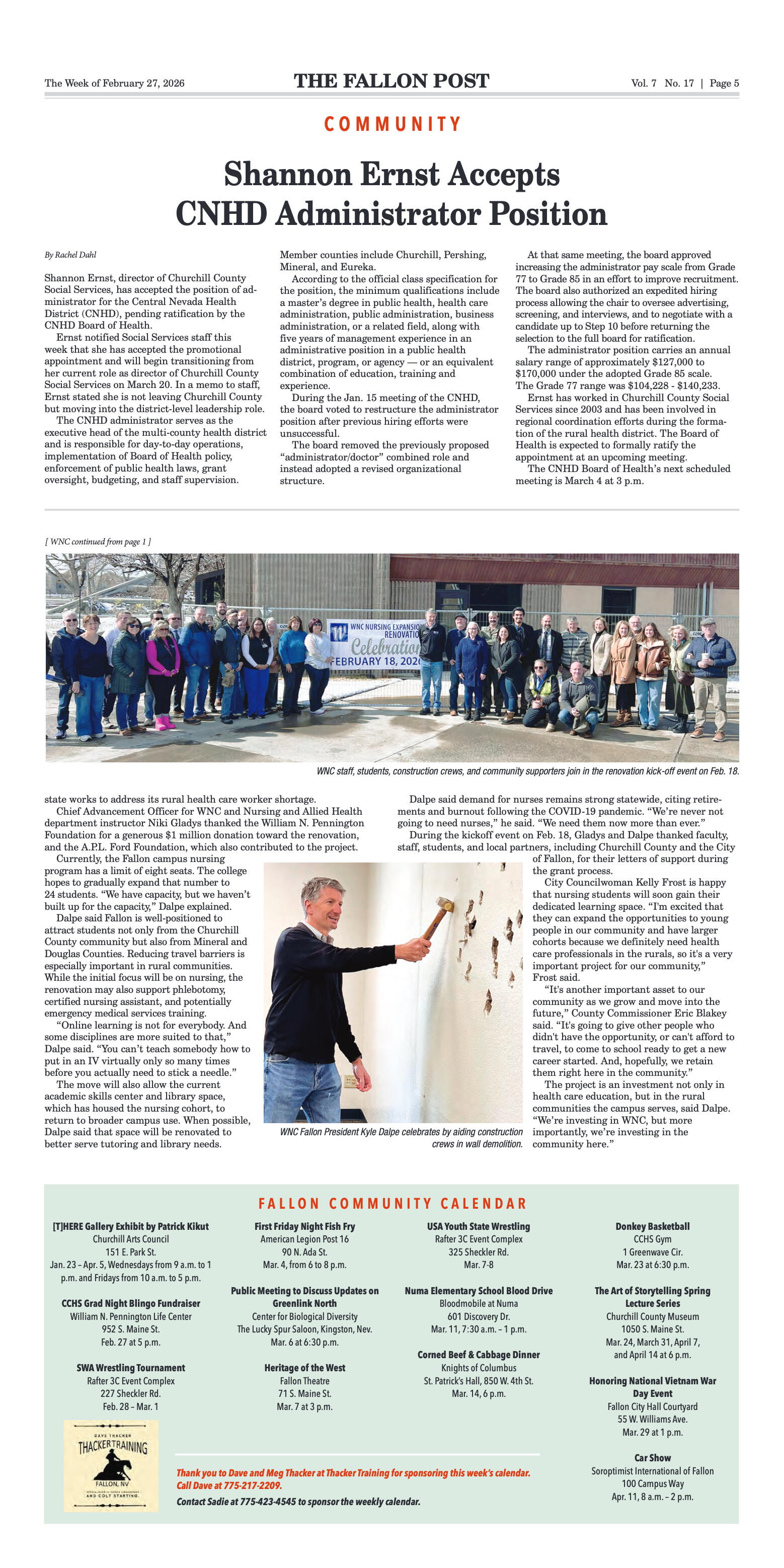

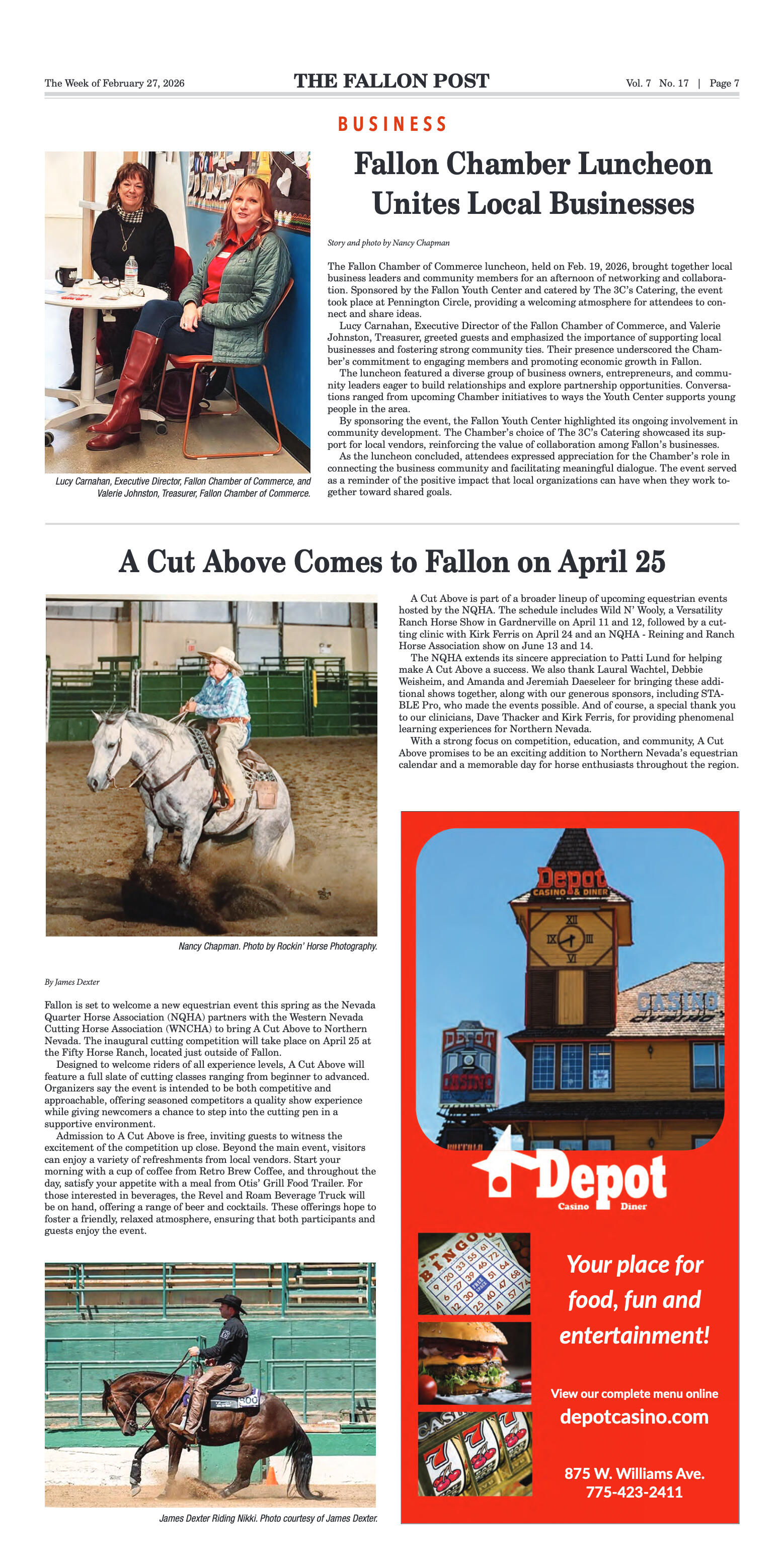
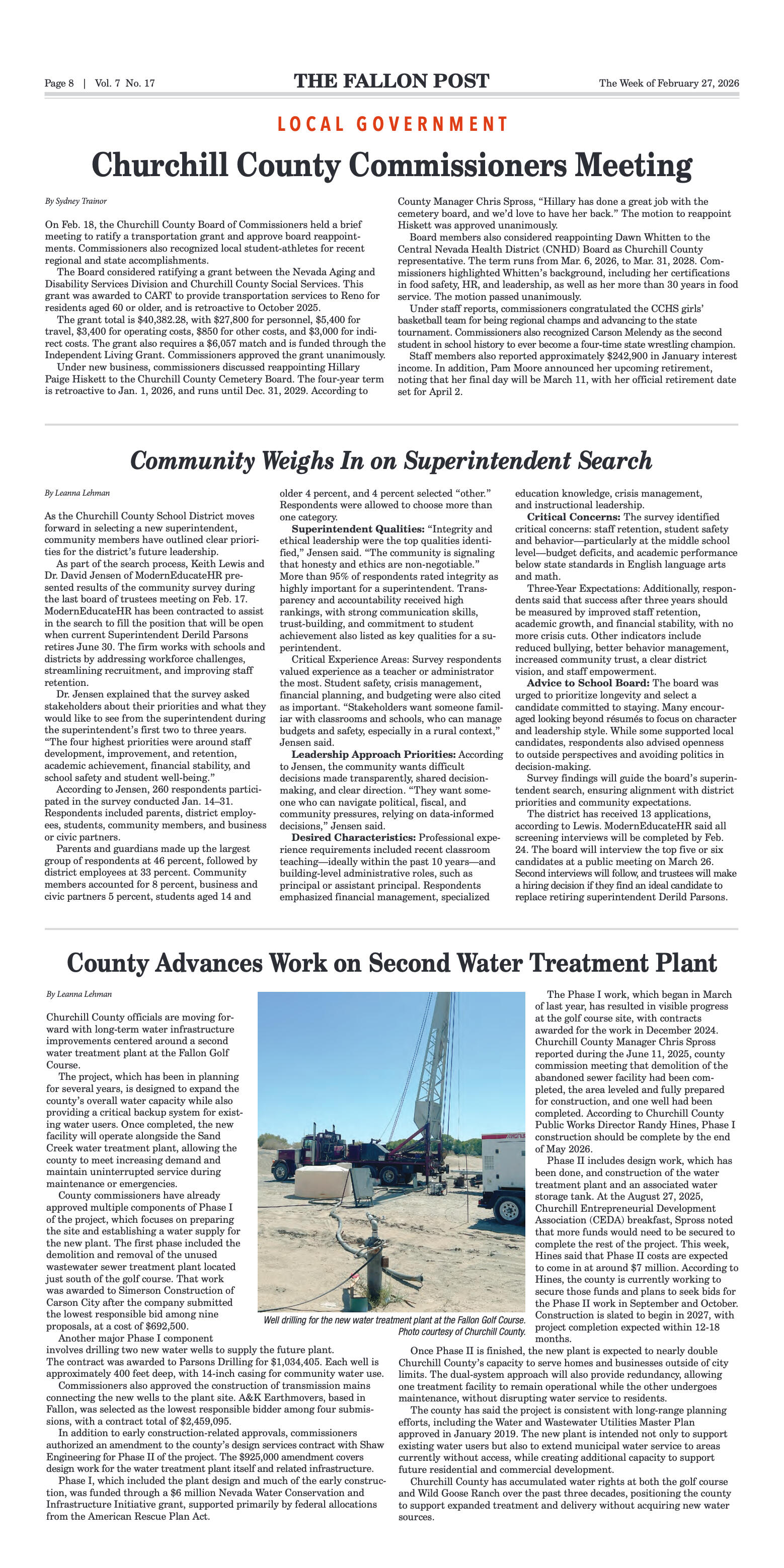
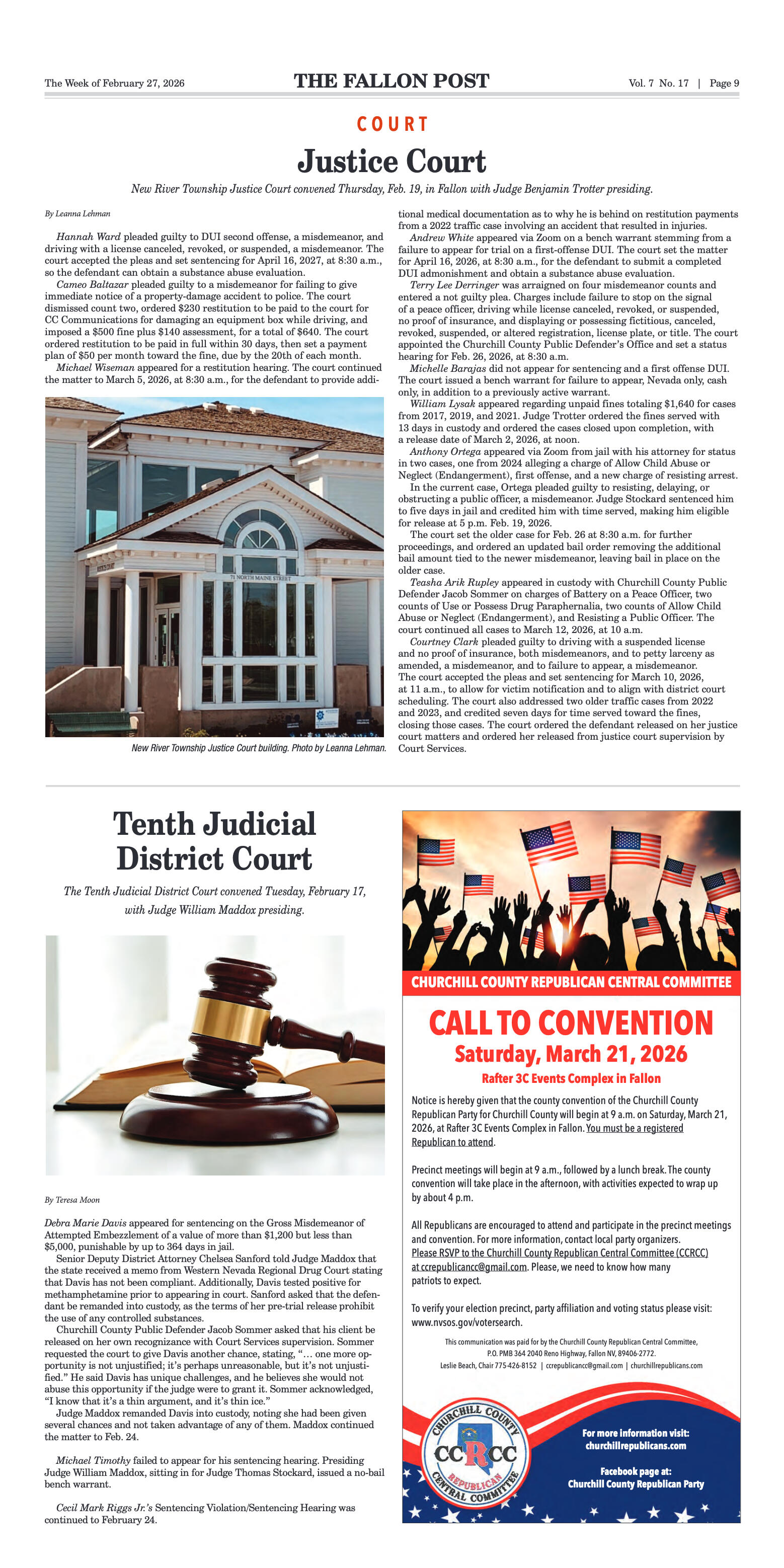
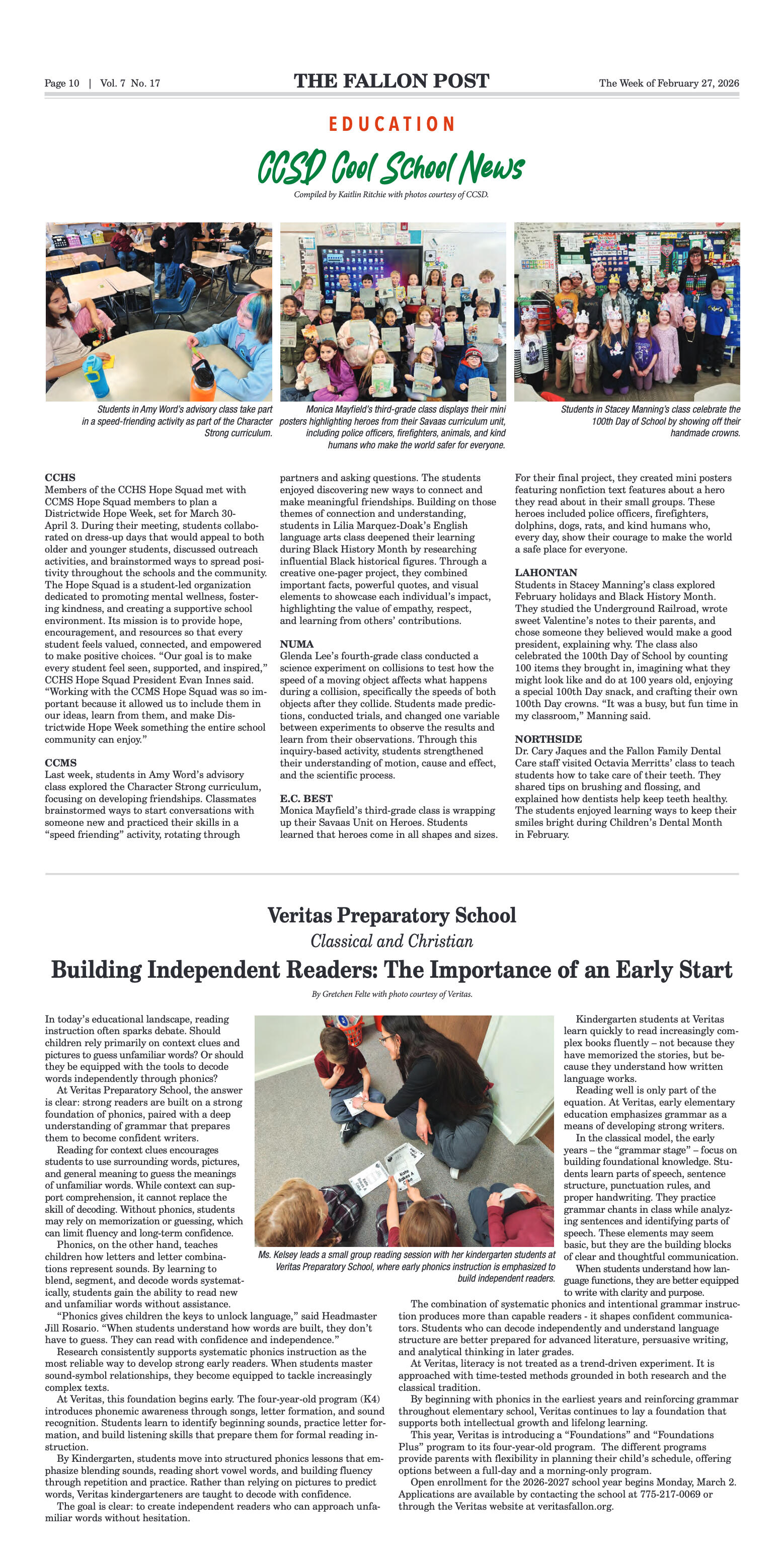
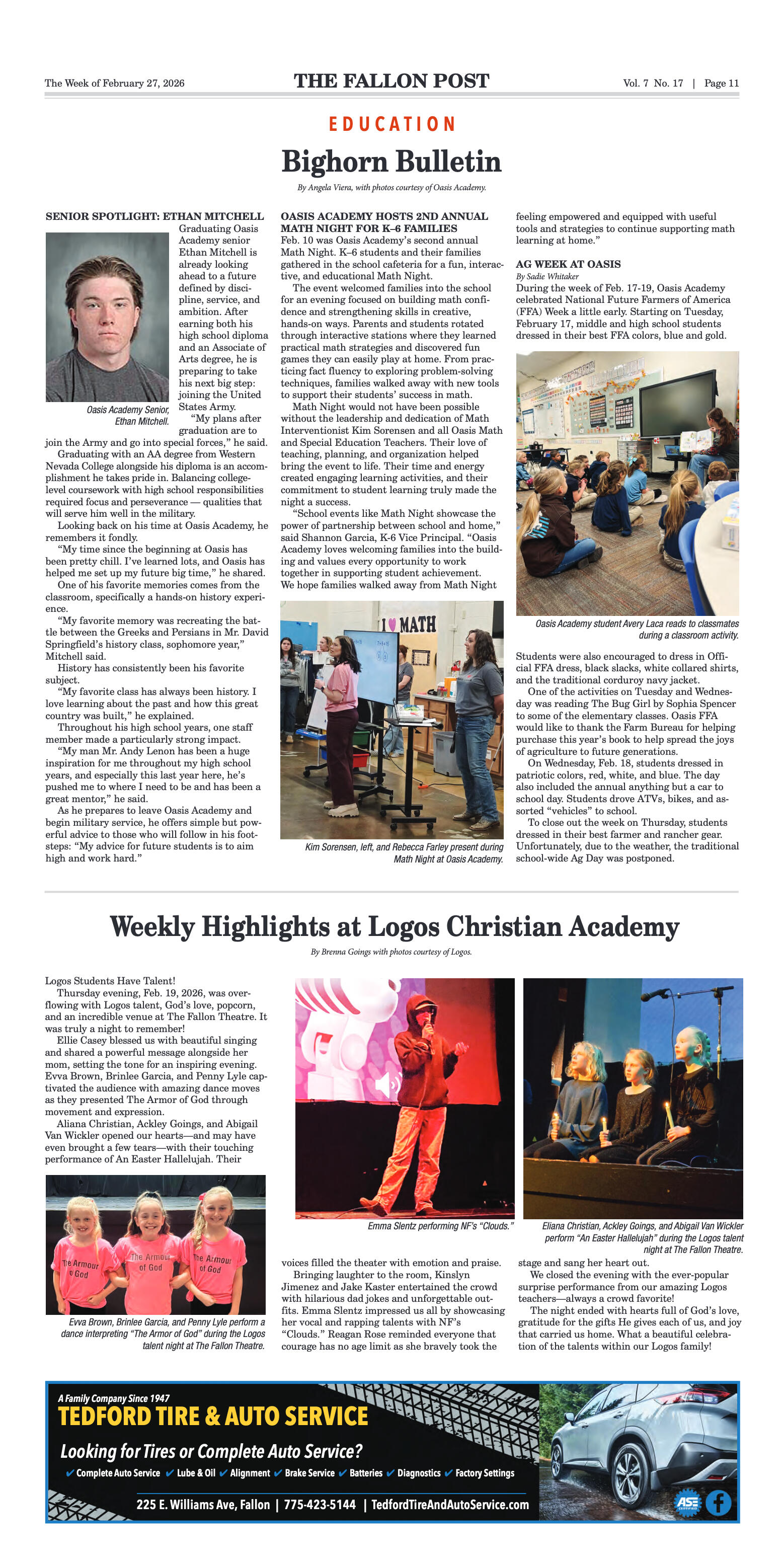
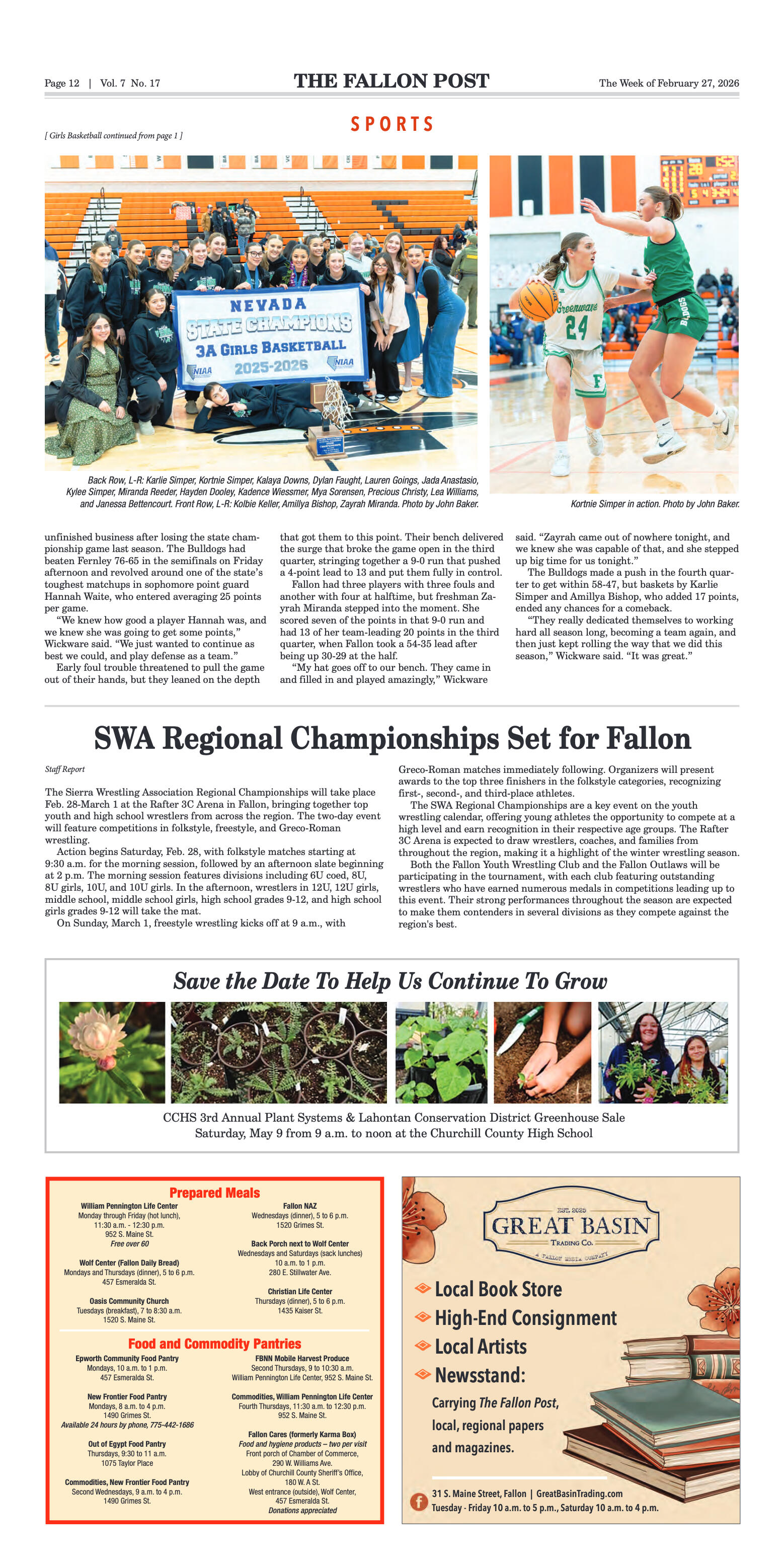


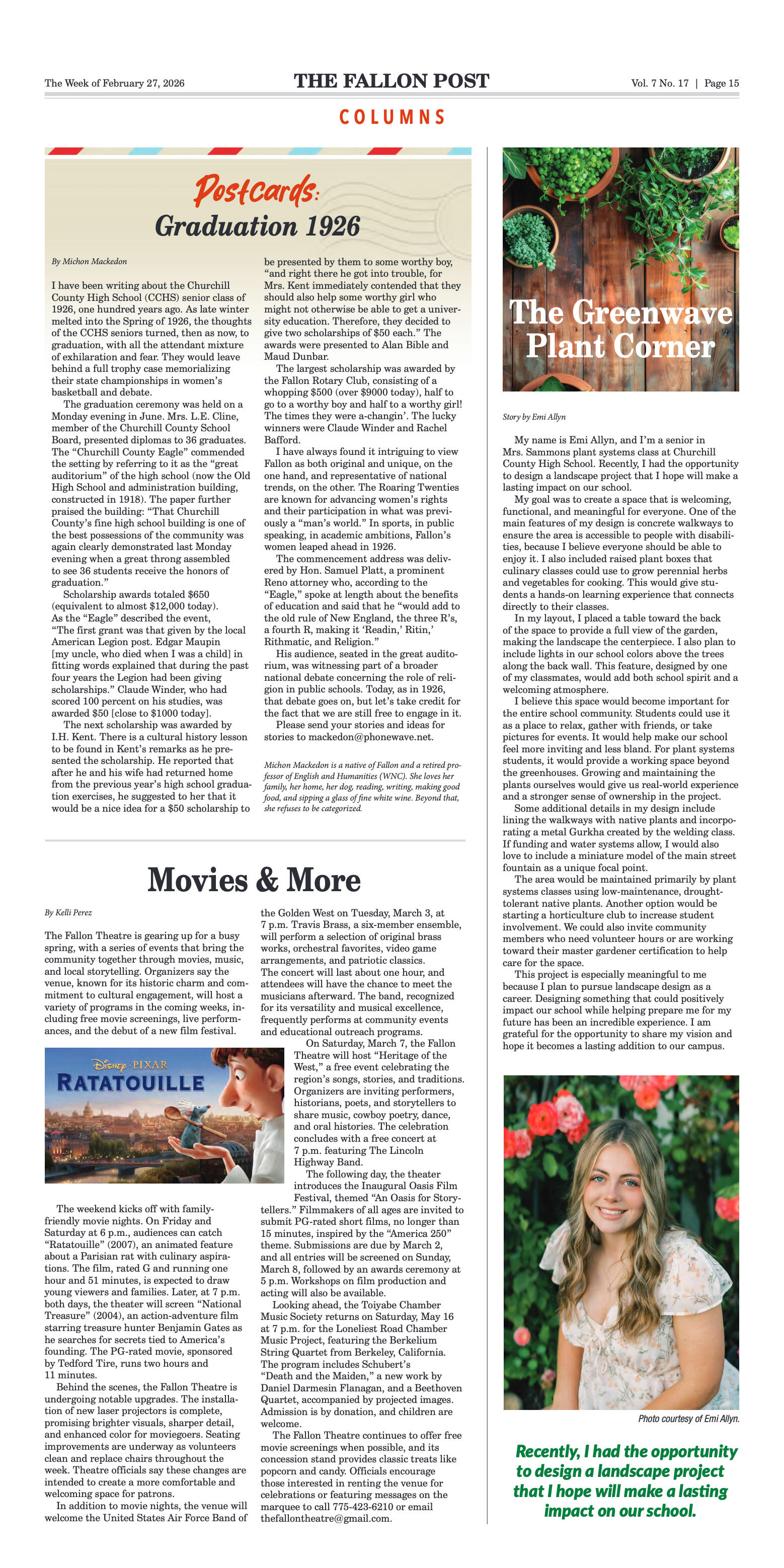
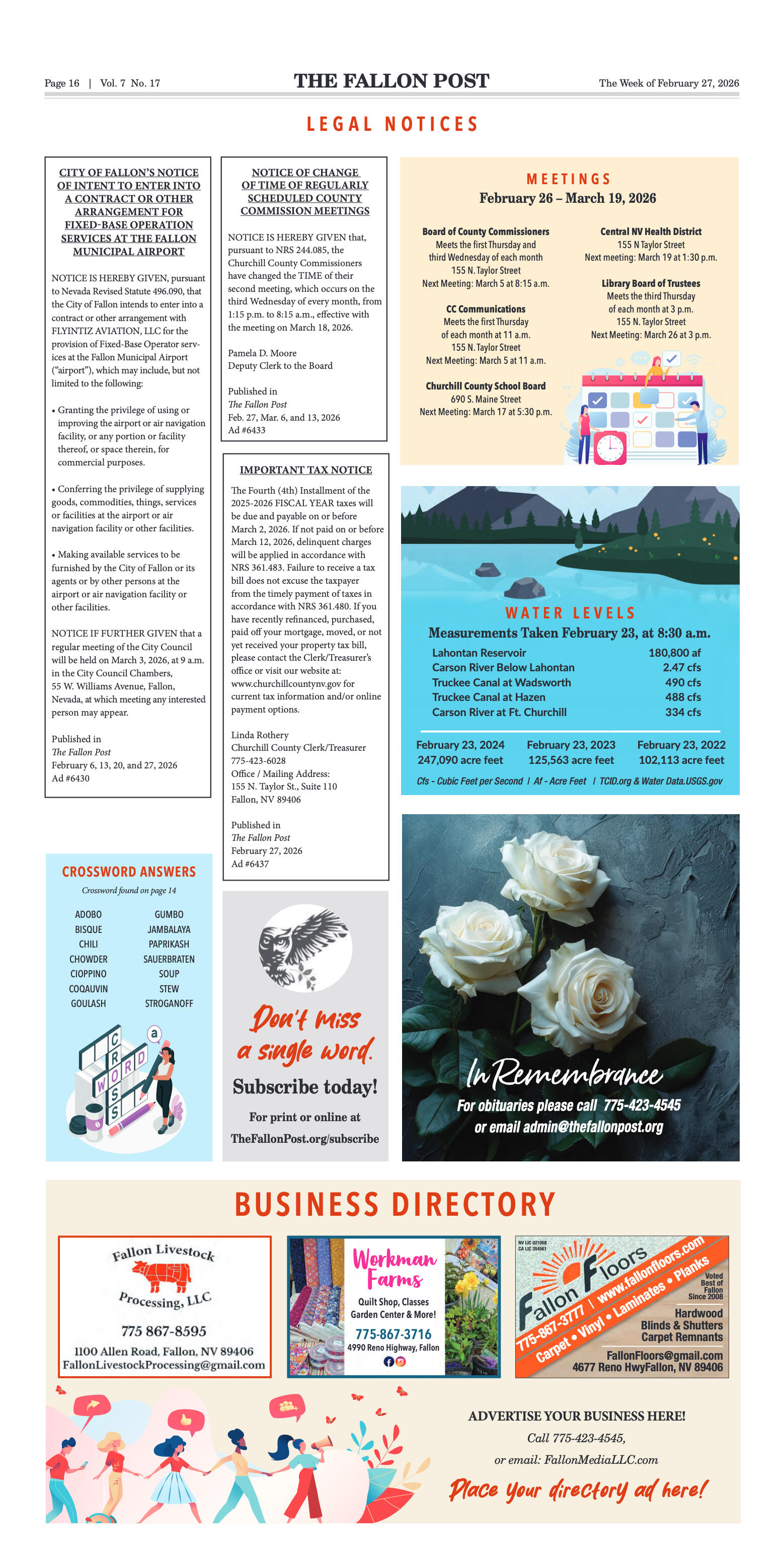
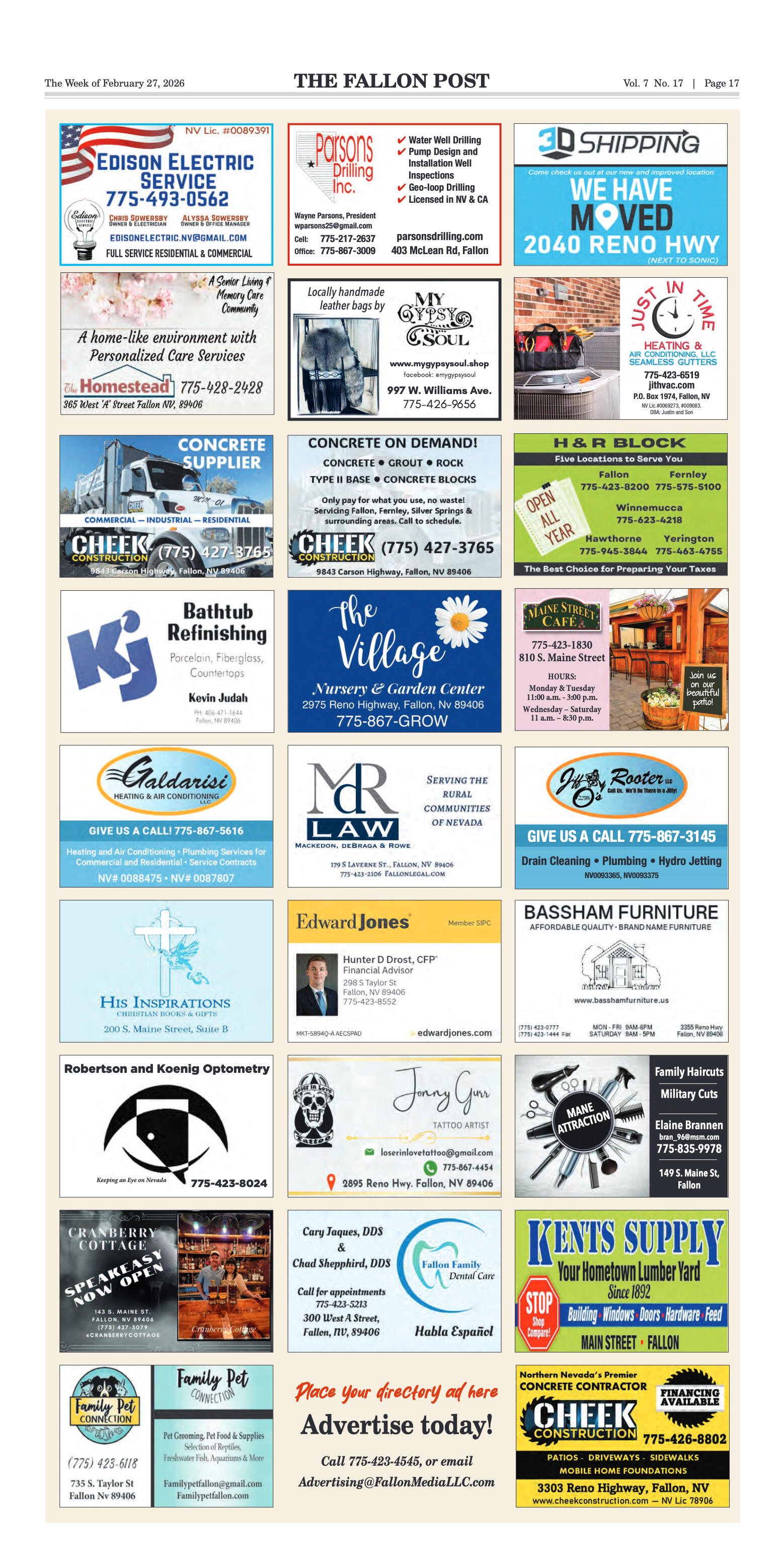



















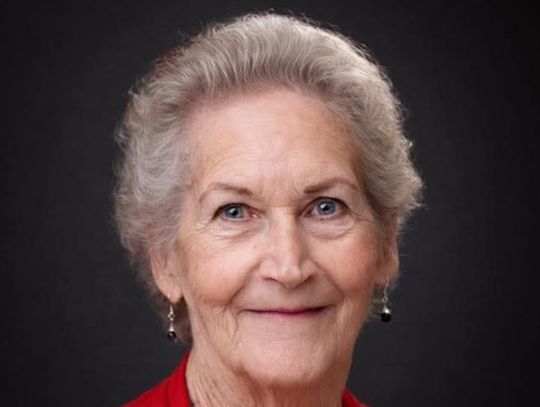


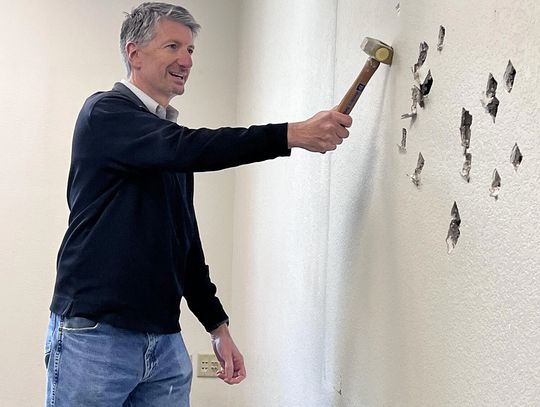
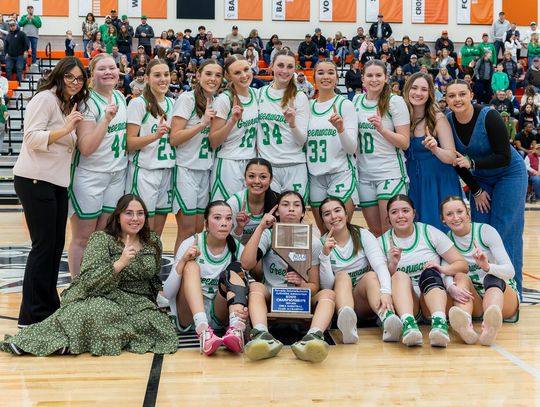

Comment
Comments